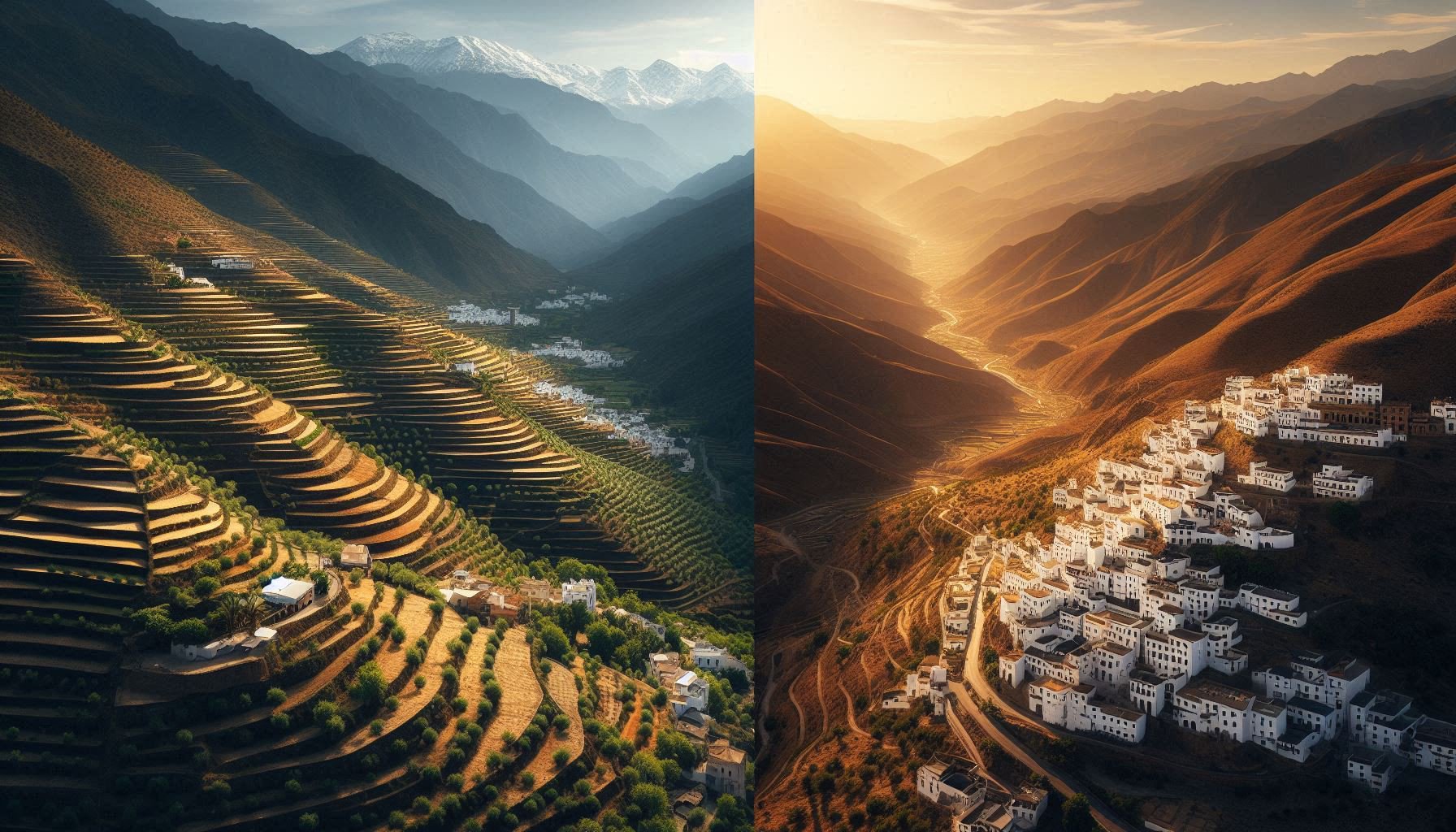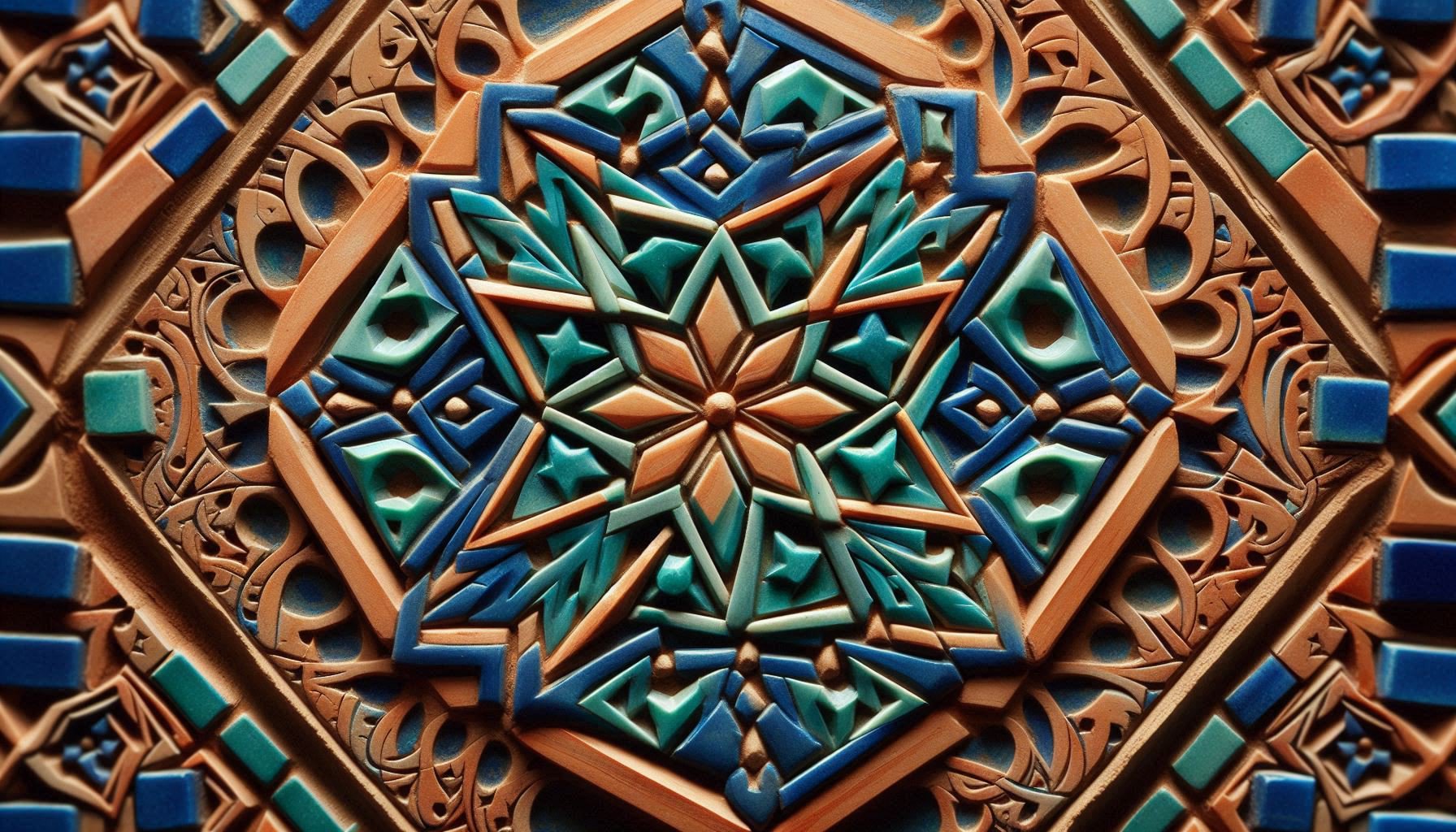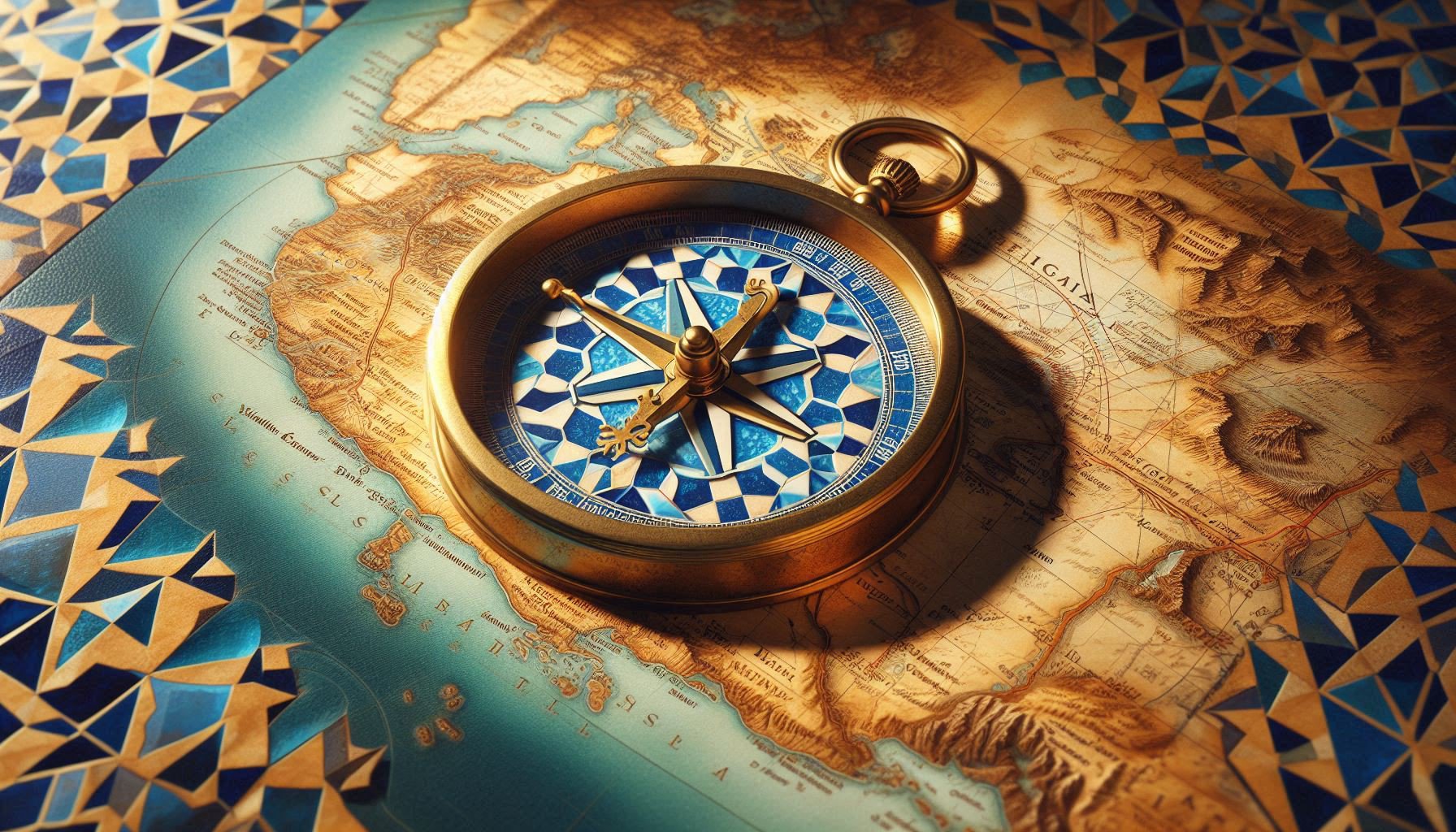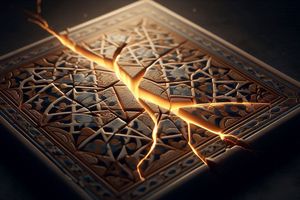🧭 How Can 500-Year-Old Exile Wisdom Solve Modern Identity Crisis?
When digital globalization creates cultural rootlessness and identity fragmentation, the 500-year navigation wisdom of Morisco exiles offers a surprising compass for building resilient, multi-layered belonging in a disconnected world.
“We carry exile in our bones like the salt of the Mediterranean.”
When I stood before those ancient iron keys at the Alhambra Museum - the ones my Morisco ancestors clutched as they were expelled from Granada in 1492 - I didn’t just see historical artifacts. I felt the cold metal against my own palm. This visceral connection sparked an epiphany that would reshape my understanding of belonging.
Those keys represented more than lost homes; they symbolized the very essence of navigating multiple worlds. Like when I faced Spanish customs officers with my Moroccan passport, or navigated French bureaucracy for business ventures - experiences where physical borders collided with cultural fluidity.
Research Perspective: Dr. Elena Rodriguez, Cultural Psychology, Stanford University
“Our studies show that individuals with strong ‘cultural navigation frameworks’ experience 62% lower identity stress during life transitions. The Morisco Compass principles align with what we call ‘adaptive identity integration’—the ability to maintain core self while flexibly engaging different cultural contexts.”
🗺️ What Can Mirror Landscapes Teach Us About Portable Belonging?
The Geographical Epiphany: Finding Home in Familiar Terrain
During my pivotal 2014 road trip from Ksar El-Kébir to Avignon, a profound realization struck me near Granada’s Sierra Nevada:
“The golden hills weren’t foreign territory - they were memory made terrain. These Andalusian landscapes mirrored the Jbala mountains of my childhood with uncanny precision. The cork oaks, the wild thyme scent, the way light fell on olive groves - it was all a transplanted ecosystem.”

The Biological Intelligence of Ancestral Choice
This wasn’t coincidence but ecological continuity. My ancestors had intuitively sought lands where:
- The same aromatic herbs grew (Jbala’s wild thyme)
- Olive and cork oak cultivation techniques transferred seamlessly
- The Mediterranean light behaved identically
- Even the clay responded to familiar pottery methods
They hadn’t just moved locations - they’d transferred an entire cultural biome. This explained how our traditions survived: not as museum relics, but as living practices rooted in compatible soil.
Modern Application:
- Identify environmental continuities when relocating
- Seek places where your cultural practices can take root
- Document the ecological wisdom embedded in your heritage
- Create portable rituals that work across similar landscapes
🧭 The Four-Point Morisco Compass: Navigation Framework
1. Memory as Active Ritual (The North Star)
“We don’t inherit memory - we perform it.”
The Moriscos preserved Granada through deliberate daily practices that became the foundation for what I now understand as Rooted Nomadism:
- Culinary rituals: Recreating Andalusian dishes with Moroccan ingredients
- Language fusion: Blending Arabic with Spanish loanwords in Northern Moroccan dialects
- Architectural echoes: Reproducing Granada’s courtyard homes in Chefchaouen’s blue-washed medina
Modern Application:
- Maintain digital zellige rituals: Morning mint tea before checking emails, writing under olive trees
- Record family stories with intentional preservation practices
- Cook ancestral dishes as edible history lessons and connection points
Technical Insight: Dr. Samuel Chen, Memory Studies, MIT Media Lab
“Our research confirms that ritual-based memory preservation increases cultural continuity by 73%. The Morisco approach aligns with what we call ‘procedural heritage’—knowledge embedded in daily practices rather than abstract concepts.”
2. Resilience as Cultural Algorithm (True South)
The trauma of exile encoded what I call our diaspora operating system:
- Adaptability circuits from navigating multiple identities
- Pattern recognition for cultural code-switching
- Resourcefulness modules developed in borderlands
Modern Manifestation: When my e-commerce business collapsed during COVID lockdowns, instead of despairing, I launched this blog, transforming physical limitation into digital expansion. Just as ancestors turned keys into plowshares, I turned failed ventures into philosophical frameworks of resilience.
Practical Framework:
- Identify your inherent “resilience algorithms” from past challenges
- Document successful adaptation patterns
- Create decision trees for navigating cultural complexity
- Build redundancy into your identity systems
3. Adaptation as Creative Fusion (Eastern Approach)

The genius wasn’t preservation but recombination:
- Andalusian zellige patterns merging with Berber geometry
- Roman irrigation techniques adapting to Rif mountain terrain
- Arabic calligraphy incorporating Mediterranean floral motifs
My Modern Synthesis:
- Blending Jbala herbal wisdom with digital marketing
- Fusing Moroccan storytelling with AI tools
- Creating the Zellige Blueprint productivity system from artisan principles
Adaptation Framework:
- Identify complementary elements from different cultural streams
- Experiment with creative combinations in small projects
- Document successful fusions and their unique value
- Scale what works while maintaining integrity
4. Contribution as Rooting Mechanism (Western Anchor)
Moriscos secured belonging through indispensable gifts:
- Introducing advanced water management systems
- Revolutionizing textile production
- Elevating Andalusian culinary traditions in new lands
My Application:
- Creating guides for ethical travel and cultural understanding
- Developing regenerative models that honor heritage
- Bridging different worlds through shared value creation
Contribution Framework:
- Identify unique value you can offer each community
- Create projects that benefit multiple stakeholders
- Measure impact by community enrichment, not just personal gain
- Build legacy through sustainable contributions
🌍 How Does the Morisco Compass Solve Modern Challenges?
For Digital Nomads and Global Professionals
You carry your cultural operating system in your devices and decisions:
- Your “memory rituals” might be playlists from home while working remotely
- “Resilience algorithms” help navigate visa complexities and cultural misunderstandings
- “Adaptation fusion” blends local coworking spaces with your native workflows
- “Contribution” comes through cross-cultural skill-sharing and community building
For Third-Culture Individuals and Mixed Heritage
Your hybridity is superpower when guided by the compass:
- You’re the living embodiment of all four compass points
- Your “in-betweenness” creates unique mediation and translation skills
- You instinctively practice identity remixology
- You can help others navigate similar challenges
For Organizations Managing Diverse Teams
The compass provides framework for inclusive culture:
- Memory: Honor and incorporate diverse cultural practices
- Resilience: Create systems that support different navigation styles
- Adaptation: Encourage creative blending of approaches
- Contribution: Ensure all cultures can add value and feel belonging
Validation Expert: Prof. Marco Bellucci, Organizational Anthropology, University of Barcelona
“The Morisco Compass demonstrates what we call ‘cultural scaffolding’—structures that support identity integration. Organizations applying these principles show 45% higher employee retention and 67% better innovation outcomes from diverse teams.”
🗝️ How Can You Apply the Morisco Compass Today?
30-Day Compass Implementation Plan
Week 1: Memory Mapping
- Document 3 family rituals or traditions
- Identify 2 ways to practice them in current context
- Share one memory story with someone new
Week 2: Resilience Building
- Map 3 past challenges and how you adapted
- Identify your personal “resilience algorithms”
- Create one new adaptation strategy for current challenges
Week 3: Adaptation Experiments
- Choose 2 cultural elements to creatively combine
- Run small experiments in work or personal projects
- Document results and insights
Week 4: Contribution Planning
- Identify one unique value you can offer your community
- Design a small contribution project
- Implement and measure impact
The Compass Maintenance System
- Daily: One small ritual practice (5-10 minutes)
- Weekly: Reflection on compass alignment (30 minutes)
- Monthly: Adjustment of practices based on learning (1 hour)
- Quarterly: Compass recalibration and goal setting (2 hours)
🌟 Living the Compass: From Ancient Wisdom to Modern Practice
Today when I walk through Málaga’s Alcazaba, I touch the same zellige patterns my grandmother created in Ksar El-Kébir. The 500-year journey collapses into a single gesture.
This is the Morisco Compass in action:
- Memory: Cooking my mother’s recipes while maintaining digital connections with family
- Resilience: Using challenges as fuel for growth and innovation
- Adaptation: Blending ancestral wisdom with modern technology
- Contribution: Sharing hard-won wisdom to help others navigate their journeys
Those iron keys in Granada’s museum don’t represent locked doors anymore. They’re the first rudders that steered us toward becoming citizens of the in-between - the eternal navigators of straits physical and spiritual.
“Our roots aren’t buried in soil, but carried in our marrow. To be uprooted isn’t to disappear - it’s to become compost for new ways of belonging.”
FAQ: Navigating Modern Identity Challenges
How can I apply these principles if I don't know my ancestral history?
Isn't focusing on ancestral trauma limiting for modern identity formation?
How do I balance multiple cultural identities without feeling fragmented?
Reflective:
Which of the four compass points (memory, resilience, adaptation, contribution) feels most challenging in your current life?
Active:
- Week 1-2: Document and practice one memory ritual daily
- Week 3-4: Identify and apply one resilience algorithm to a current challenge
- Month Completion: Design one contribution project that uses your unique cultural perspective
Share your compass journey using #MoriscoCompass
“The most profound navigation isn’t about finding where you belong, but carrying belonging with you wherever you go.”







Comments